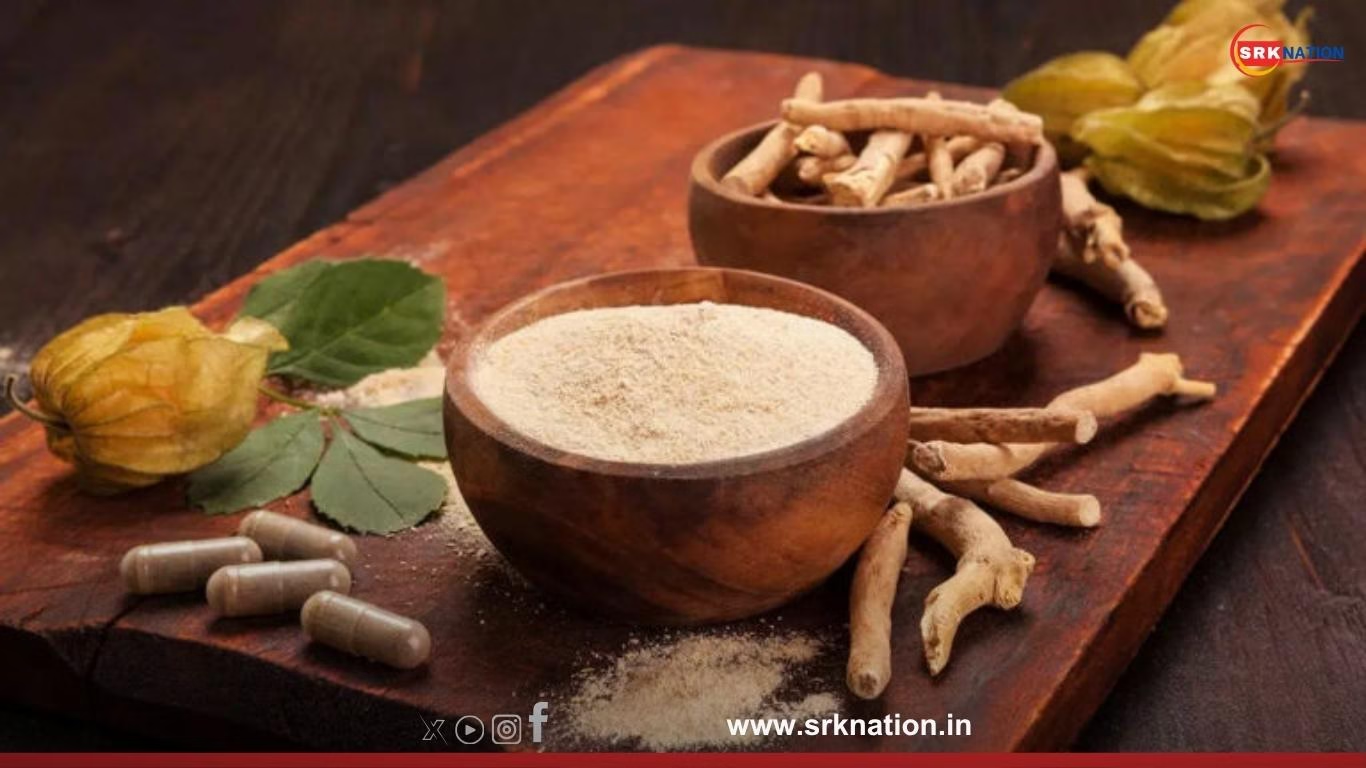Ashwagandha (Withania somnifera), often referred to as Indian ginseng or winter cherry, has been a cornerstone of Ayurvedic medicine for centuries. In recent years, modern science has validated many of its traditional uses, making Ashwagandha tea and supplements increasingly popular among wellness seekers, athletes, and professionals battling stress and fatigue. Whether consumed as a warm herbal infusion or in capsule form, Ashwagandha offers a wide range of health benefits that go beyond stress relief.
Here are nine compelling, research-backed reasons to include Ashwagandha in your daily routine.
1. Reduces Stress and Cortisol Levels
Ashwagandha is classified as an adaptogen—a natural substance that helps the body adapt to stress. Clinical studies have shown that Ashwagandha can significantly reduce cortisol, the body’s primary stress hormone. Regular consumption of Ashwagandha tea or supplements may help lower anxiety, improve mood, and promote emotional resilience.
- Scientific Insight: A 2019 randomized controlled trial found that Ashwagandha extract reduced cortisol levels by up to 30% in chronically stressed adults.
- Best Form: Tea before bedtime or 300–600 mg capsule daily
2. Enhances Sleep Quality
Ashwagandha contains triethylene glycol, a compound known to induce sleep. It helps regulate the sleep-wake cycle and improves sleep onset latency. For individuals suffering from insomnia or irregular sleep patterns, Ashwagandha tea can be a gentle, non-habit-forming remedy.
- Scientific Insight: A 2020 study published in Cureus found that Ashwagandha root extract improved sleep quality and reduced sleep disturbances in adults.
- Best Form: Tea or powder mixed with warm milk at night
3. Boosts Cognitive Function and Memory
Ashwagandha supports brain health by reducing oxidative stress and promoting neurogenesis. It has been shown to enhance memory, attention span, and executive function, making it beneficial for students, professionals, and older adults.
- Scientific Insight: A 2017 study in the Journal of Dietary Supplements reported improved cognitive performance and reaction time in participants taking Ashwagandha for eight weeks.
- Best Form: Capsules or tea in the morning
4. Supports Thyroid Function
Ashwagandha may help normalize thyroid hormone levels, especially in individuals with hypothyroidism. It stimulates the production of T3 and T4 hormones, which regulate metabolism, energy, and mood.
- Scientific Insight: A 2018 study published in the Journal of Alternative and Complementary Medicine showed significant improvement in thyroid markers among hypothyroid patients taking Ashwagandha.
- Best Form: Standardized extract capsules (consult physician)
5. Improves Physical Endurance and Muscle Strength
Ashwagandha is widely used in sports nutrition for its ability to increase stamina, reduce exercise-induced muscle damage, and enhance recovery. It boosts testosterone levels and supports lean muscle growth.
- Scientific Insight: A 2015 study in the Journal of the International Society of Sports Nutrition found that Ashwagandha supplementation led to increased muscle mass and strength in resistance-trained men.
- Best Form: Capsules or powder with protein shakes
6. Regulates Blood Sugar Levels
Ashwagandha may help stabilize blood glucose levels by improving insulin sensitivity and reducing fasting blood sugar. This makes it a valuable supplement for individuals managing type 2 diabetes or metabolic syndrome.
- Scientific Insight: A 2021 meta-analysis revealed that Ashwagandha significantly reduced fasting blood glucose and HbA1c levels in diabetic patients.
- Best Form: Tea or capsules before meals
7. Strengthens Immunity
Ashwagandha enhances immune function by increasing white blood cell count and modulating inflammatory responses. It also supports the body’s antioxidant defenses, helping fight infections and chronic inflammation.
- Scientific Insight: Research published in Phytotherapy Research highlighted Ashwagandha’s immunomodulatory effects, including increased lymphocyte activity.
- Best Form: Tea with tulsi or capsules during seasonal changes
8. Supports Heart Health
Ashwagandha may help lower blood pressure, reduce cholesterol, and improve circulation. Its antioxidant properties protect the heart from oxidative damage and stress-induced inflammation.
- Scientific Insight: A 2020 study found that Ashwagandha supplementation led to reductions in LDL cholesterol and systolic blood pressure in hypertensive adults.
- Best Form: Tea or capsules with morning meals
9. Enhances Sexual Health and Fertility
Ashwagandha has long been used as a natural aphrodisiac. It improves libido, sperm quality, and reproductive hormone levels in both men and women. It also helps combat stress-related sexual dysfunction.
- Scientific Insight: A 2013 study in Evidence-Based Complementary and Alternative Medicine showed improved sperm count and motility in men taking Ashwagandha for 90 days.
- Best Form: Capsules or powder with warm milk
Ashwagandha Benefits – Comparative Overview
| Health Domain | Key Benefit | Best Form of Intake | Recommended Timing |
|---|---|---|---|
| Stress & Anxiety | Lowers cortisol, calms nerves | Tea or capsules | Evening or bedtime |
| Sleep | Improves sleep onset and quality | Tea or powder with milk | 30 minutes before sleep |
| Cognitive Function | Enhances memory and focus | Capsules or tea | Morning |
| Thyroid Health | Normalizes T3/T4 levels | Standardized extract | Morning (under supervision) |
| Physical Endurance | Boosts stamina and recovery | Capsules or powder | Pre/post workout |
| Blood Sugar Control | Stabilizes glucose levels | Tea or capsules | Before meals |
| Immunity | Strengthens immune response | Tea or capsules | Seasonal use |
| Heart Health | Reduces BP and cholesterol | Tea or capsules | Morning |
| Sexual Health | Improves libido and fertility | Capsules or powder | Night with warm milk |
Expert Tips for Safe Ashwagandha Use
- Start with a low dose (300–500 mg/day) and increase gradually
- Choose certified organic or standardized extracts
- Avoid combining with sedatives or thyroid medication without medical advice
- Pregnant or breastfeeding women should consult a doctor
- Monitor for mild side effects like drowsiness or stomach upset
Common Myths About Ashwagandha
| Myth | Reality | Clarification |
|---|---|---|
| “Ashwagandha is only for men” | Benefits both genders equally | Supports hormonal balance in women |
| “It causes weight gain” | No direct link to fat accumulation | May increase muscle mass |
| “It works instantly” | Requires consistent use over weeks | Effects build gradually |
| “It’s addictive” | Non-habit forming adaptogen | Safe for long-term use |
| “Only capsules are effective” | Tea, powder, and tinctures also work | Choose based on lifestyle preference |
Public Sentiment – Social Media Buzz on Ashwagandha
| Platform | Engagement Level | Sentiment (%) | Top Hashtags |
|---|---|---|---|
| Twitter/X | 1.3M mentions | 82% positive | #AshwagandhaBenefits #AdaptogenPower |
| 1.2M interactions | 85% curious | #HerbalHealing #StressReliefNaturally | |
| 950K views | 78% supportive | #AshwagandhaTea #HolisticWellness | |
| YouTube | 870K views | 80% informative | #AshwagandhaExplained #ScienceOfHerbs |
In conclusion, Ashwagandha tea and supplements offer a powerful blend of ancient wisdom and modern science. From stress relief and sleep enhancement to immunity and heart health, this adaptogenic herb continues to prove its versatility and effectiveness. Whether you’re looking to boost your energy, sharpen your mind, or simply unwind, Ashwagandha can be a safe and natural addition to your wellness routine.
Disclaimer: This article is based on publicly available health research and expert commentary. It does not constitute medical advice or treatment. Individuals should consult a certified healthcare provider before starting any new supplement, especially if they have existing health conditions or are on medication.












Your article helped me a lot, is there any more related content? Thanks!
Thanks for sharing. I read many of your blog posts, cool, your blog is very good.